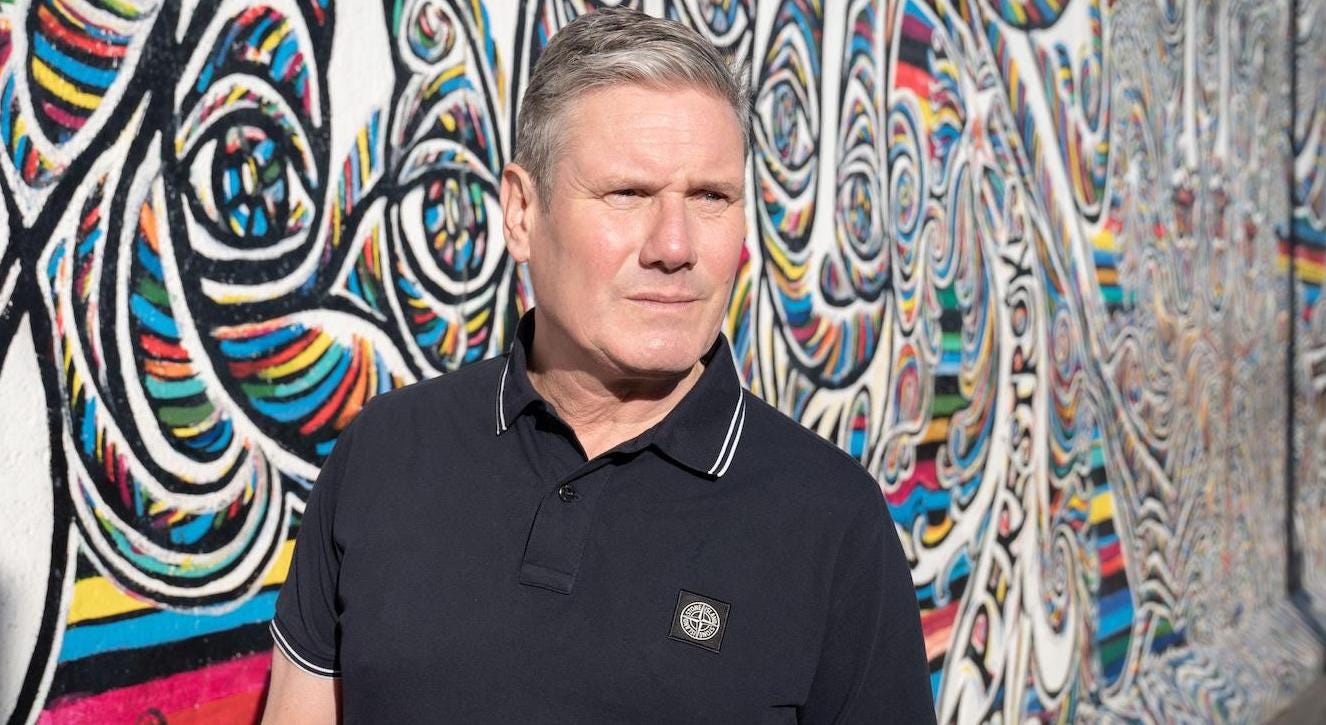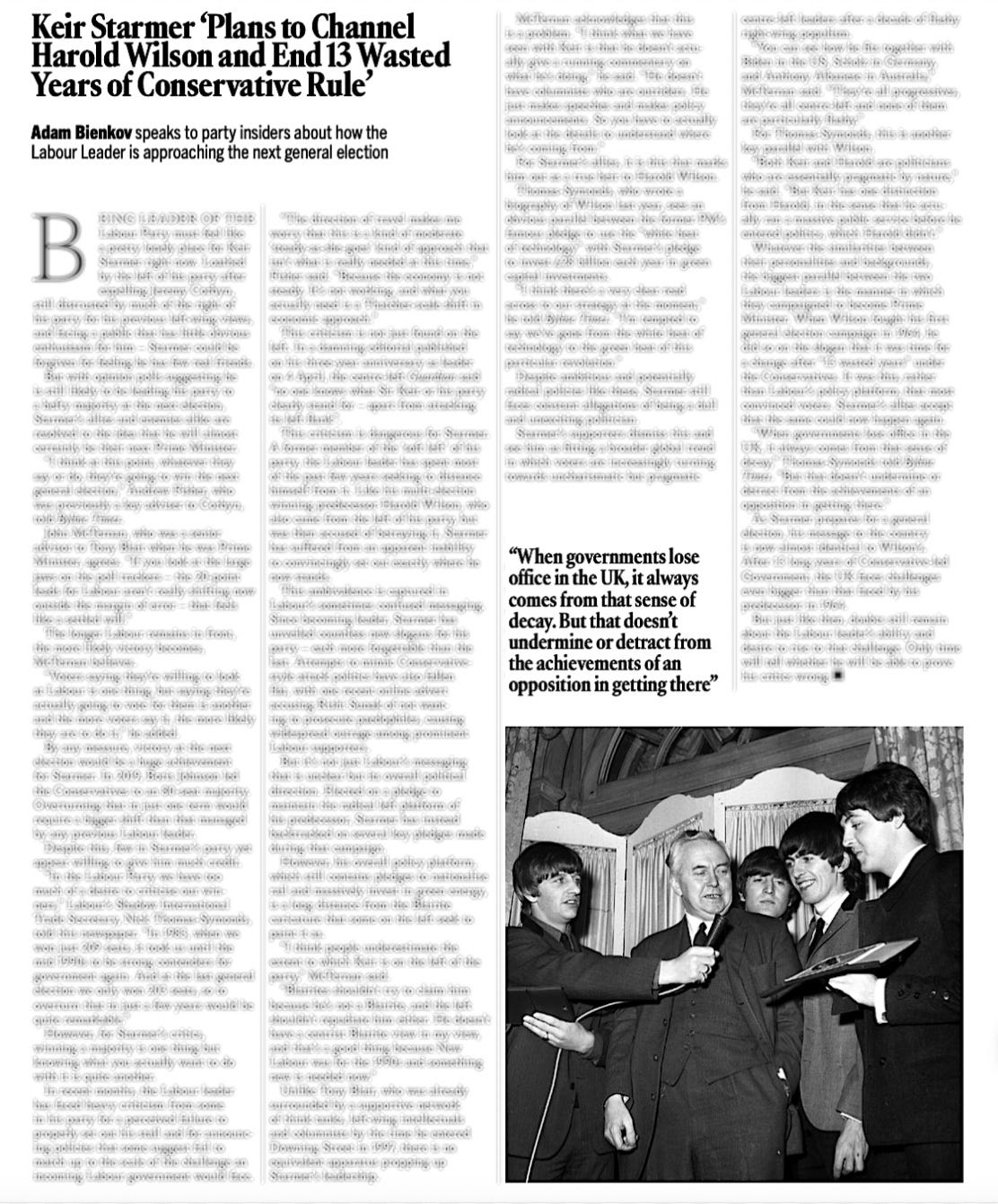Starmer Out of Proportion
The Labour leader's latest backpedal raises the question of what a future Labour government would really look like
What, if anything, does Keir Starmer really stand for? That’s the question that reared its head once again today after his spokesman told my colleague Josiah Mortimer that the Labour leader is a “long-standing” opponent of proportional representation.
That Starmer does not intend to bring in PR, if he becomes Prime Minister, is perhaps not massively surprising. Last July his spokesman downplayed the possibility, telling me that “it’s not something I've heard him enthusiastically embrace."
Starmer also ignored a vote by Labour conference last September, backing a switch to PR.
However, the claim that he is an active and “long-standing” opponent of PR is a more surprising one. Not least because just three years ago, when he was running for Labour leader, Starmer suggested that he actually supported PR, promising at one event that he would “address the fact that millions vote in safe seats and feel their vote doesn’t count” through electoral reform.
Starmer’s PR backpedal is just the latest example of a whole series of areas where he has ditched previously held positions, on everything from nationalisation to freedom of movement, to tuition fees.
As I have written before, these U-turns raise serious questions about his honesty and credibility, as well as over which potential further back-pedals he may take if and when he does become Prime Minister.
So should we be starting to worry about what a Starmer premiership would really look like?
For the second month in a row my column in the print edition of Byline Times focuses on exactly that question.
For the piece, I interviewed the Shadow International Trade Secretary Nick Thomas-Symonds, as well as John McTernan, who was a former senior aide to Tony Blair and Andrew Fisher, who was a senior aide to Jeremy Corbyn.
All three made compelling arguments about what they believe a Starmer government will really look like. For Thomas-Symonds, Starmer is the natural heir to Harold Wilson - a reforming election winning politician planning to reforge the country in the “green heat” of a new green industrial revolution.
Others, like Fisher, disagree, seeing Starmer as a “steady-as-she-goes” politician with no real vision for a country that is facing serious economic and social difficulties.
It remains to be seen which of these assessments ends up being closer to the truth.
However, I do have a sympathy, both with those who criticise Starmer for his lack of ambition, as well as those who suggest that we may be underestimating quite how different, and left-leaning a Labour Government under Starmer would look after the last 13 years.
As McTernan told me, “I think people underestimate the extent to which Keir is on the left of the party.”
“Blairites shouldn't try to claim him because he’s not a Blairite, and the left shouldn't repudiate him either. He doesn't have a centrist Blairite view in my view, and that’s a good thing because New Labour was for the 1990s and something new is needed now.”
While I think McTernan may be overstating, I do think he has a point. For all the U-turns and broken promises from his leadership campaign, the agenda currently being put forward by Starmer is still significantly different from that seen under both New Labour and the current Government. As things stand Starmer is committed to nationalising the railways, putting massive investment into the green economy, and reversing anti-trade union laws and the Illegal Migration Bill.
If that all happens, it would be a significant break from the past.
Of course the big and unanswered question is whether all of it actually will.
And that is why it is so important, as a journalist, to keep on asking these questions.
In order to read my full column, exclusive to this month’s edition of Byline Times, you can subscribe to receive a copy for 20% off by entering ADAM20 when you purchase an annual subscription at the checkout here.





Yes absolutely right I’m afraid. Especially regarding freedom of movement. So disappointing.
Some say he is being "ambiguous". Simply saying that other things are more a priority. Of course, many people have been here before. Pro-Europeans were desperate for Corbyn to come off the fence and have a Brexit policy. Then Starmer arrived with support for freedom of movement. Two years of silence, maddening and frustrating that the lies were not called out, then the decision to "make Brexit work".
This was explained by the red wall wanting Brexit and those voters being far more important than me or anyone else. This almost makes the case for PR. A few thousand voters in a small number of constituencies dictating the position of a government.
The problem for Starmer is that even if he achieves everything, if those few thousand voters change again, the Conservatives will be back with a huge majority.
In the 10 years from the London Olympics of 2012 to Brexit Britain we went from cool Britannia to cruel Britannia. A Starmer government that doesn't want PR will lead to the reversing of anything he does.